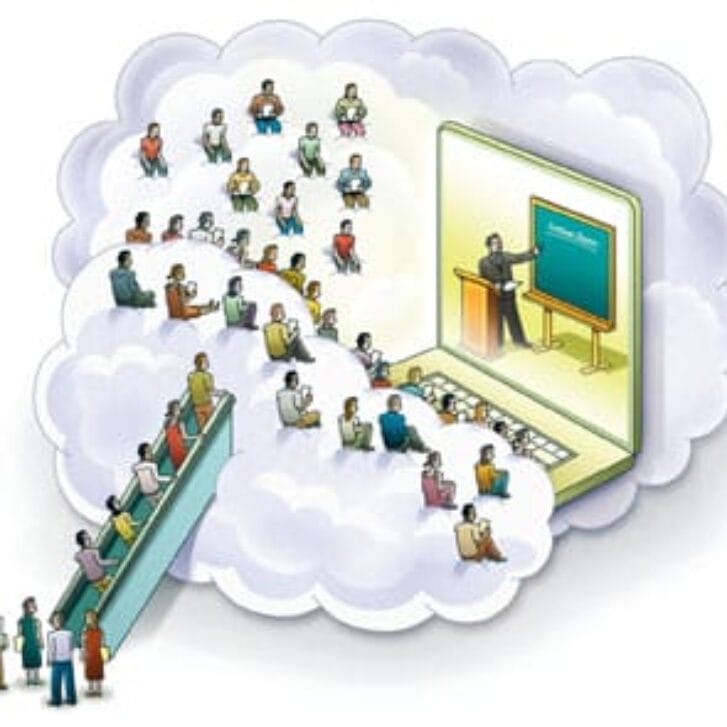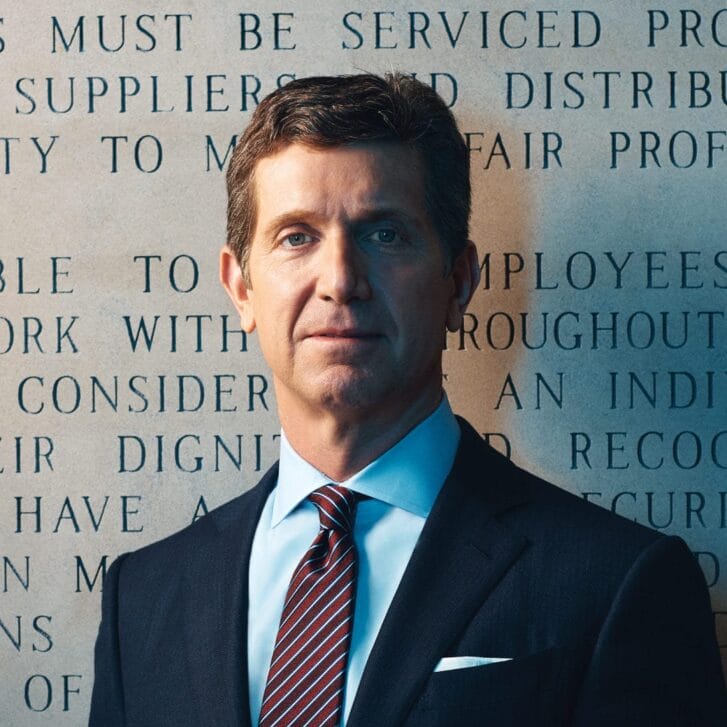Since first making headlines in 2011, hundreds of universities have begun offering thousands of MOOCS, or massive open online courses, to millions of students around the world. While researchers are still looking at what this relatively new technology means for education, many business professionals are already yielding the benefits. In the new ebook Mastering MOOCs, published with Wharton Digital Press, Knowledge@Wharton reports on how business professionals are using MOOCs to further their careers and to help their companies and teams succeed. The following essay is excerpted from the e-book:
Max Buckley was on the cusp of graduating from the Cork Institute of Technology when he stumbled upon a relatively new form of online learning—the massive open online course, or MOOC.
Although he was studying business administration, Buckley had an eye for the technological side of things and was regretting not pursuing a more computer-related field. The Circuits and Electronics MOOC from the Massachusetts Institute of Technology caught his eye, so he enrolled in the free course.
Final exams prevented him from finishing it, but he was hooked on the concept—free classes that he could take online, on his own schedule and offered by some of the most prestigious universities in the world. He kept enrolling in interesting classes and eventually steered himself toward computer programming courses. As luck would have it, he enrolled in a data analysis course at the same time he interviewed for an internship with Google.
An even bigger stroke of luck was finding out his interviewer was also enrolled in that class. Buckley landed the internship and then was hired full time. He is now a product quality analyst, charged with helping the tech giant fight spam.
“It wasn’t the sole reason [I got the internship], but a good part of it was that I had this blend of programming and business, and [the learning] was self-directed,” he said of his MOOC background. “I had the formal education box ticked, but this extra work was interesting. Obviously, I’ve learned a lot more by using them, and that has fed back into my formal studies.”
Buckley’s story may be extraordinary—not everyone is going to land a job with Google by taking a few free online courses—but it demonstrates the growing power of MOOCs as a way to bring world-class education to anyone with time, commitment and an Internet connection.
Why Take a MOOC?
For Shawn Jones, a MOOC represented an escape from a dead-end retail job and the chance to get traction in an in-demand tech field.
For Michelle Warner, a MOOC was a way to learn the basic legal ins-and-outs of establishing a startup.
And for Abhay Tandon, MOOCs taught him global business practices that put him at the forefront of new technologies.
MOOCs gave these three learners a chance to make professional leaps that either a lack of time or money would have otherwise prevented. Working at their own pace and around the demands of their full-time jobs, they were able to crack into new professions, start businesses and position themselves to make deals on different continents.
Many of the benefits of a MOOC can be found elsewhere on the learning spectrum: textbooks, workshops, webinars, executive education courses or college degrees. Each can provide similar benefits to lifelong learners. Where MOOCs have a unique advantage, however, is in their capacity to help self-directed learners more deeply immerse themselves in new knowledge or gain new skills with relatively few barriers.
The courses are open, so you don’t need to apply and be accepted into a program, and most are free. They offer deep dives into a wide range of subjects but offer learners the flexibility to take only a portion of a course if they so desire. Because the courses are online, they allow learners to weave learning around their day-to-day responsibilities.
But MOOCs aren’t easy. The best MOOCs are academically challenging, especially if the course is in a new field for the learner.
“Independent learning is difficult, but you can learn from a MOOC,” said Deidre Woods, executive director of the Open Learning Initiative at the University of Pennsylvania. “It’s not a degree, but you learn things that can be applied immediately.”
The ROI of a MOOC
Jones said he found enormous value from his MOOC experience. He can draw a line straight from his CS50 course to a new job and increased earnings. Measuring the return on investment of a MOOC isn’t always such an obvious process, however.
Since the classes are often free, it’s not as easy as calculating X money spent brought in Y dollars of savings or additional business. The ROI will depend specifically on what each learner came into the MOOC hoping to accomplish and how much the MOOC is able to meet those goals.
Warner, a Denver-based entrepreneur, has been a MOOC learner nearly since the format’s inception. Along with brushing up on her skills and refreshing her memory on key business topics, Warner said one specific MOOC helped her be a smarter consumer when she was starting a new company.
Law and the Entrepreneur, a Northwestern University Law School MOOC offered on Coursera, helped her get basic legal information on establishing her business. Since the source was a world-renowned law school, she felt comfortable using that information as she worked on building a new company while providing think-tank services for other startups, founders and small businesses.
Getting startups off the ground doesn’t leave much space for free time, so the flexibility MOOCs offered were invaluable to Warner’s learning process. Sometimes that meant completing an entire MOOC; other times, it meant jumping into one briefly to audit a specific topic.
“I’m an entrepreneur; I have to be self-driven,” she said. “I have to look at what I need to do to round out my skills. If that means two weeks, to me, that’s a success. Sometimes it’s just watching the lectures.”
MOOCs also offer a value beyond the skills or knowledge that can be gleaned from the courses. Major universities offer MOOCs, including top-tier programs that normally come with stiff costs and high barriers to entry. Getting access to that knowledge, even if only for one online lecture, gives learners access to world-class institutions and their top talent without having to worry about admission exams and tuition bills.
“When I add a course from a reputable business school, it adds value [to my CV],” Tandon said. “It’s not too much time to invest in learning something new. In the long run, it’s nothing [compared to] what I’m learning from these courses.”
A new e-book from Wharton Digital Press helps readers use open online courses to achieve their goals.
Find out more about Mastering MOOCs at knowledgeatwharton.com/books. To take a Wharton course on Coursera, visit online.wharton.upenn.edu/
Published as “Mastering MOOCS” in the Spring/Summer 2016 issue of Wharton Magazine.


























